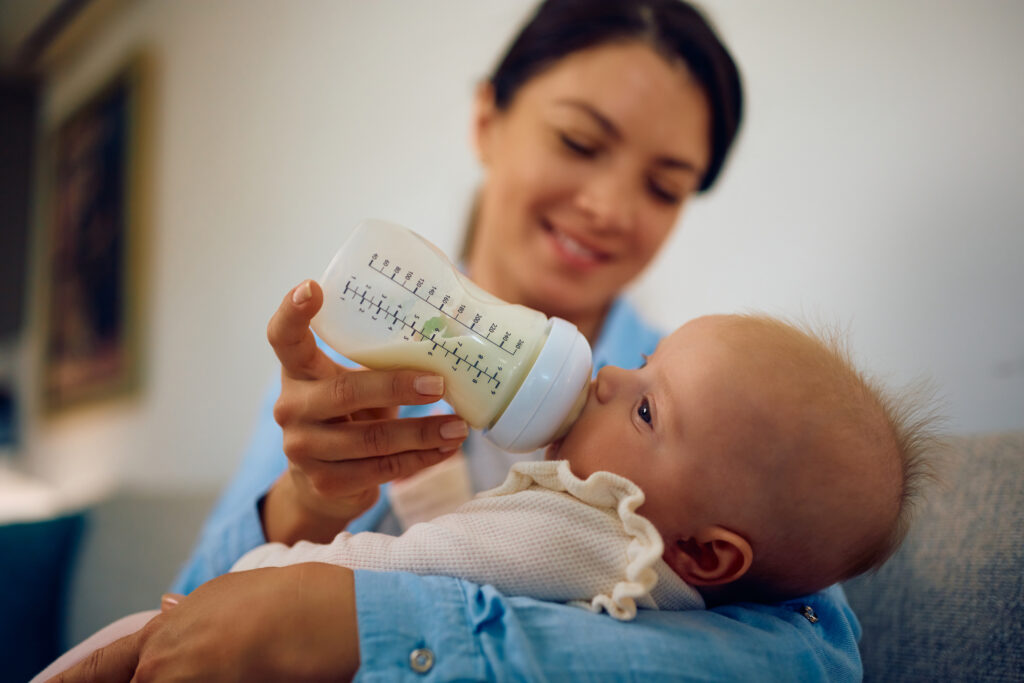
- +61 1300 704 750
- admin@parentinggenie.com.au
- PO Box 706, Townsville, QLD 4810

Feeding your baby is one of the most critical and nurturing parts of early parenting. Whether you’re exclusively using infant formula or combining it with breast milk, one of the most common questions Australian parents ask is: “How much formula should I feed my baby?”
The answer depends on your baby’s age, weight, and feeding habits. In this guide, we break it down using millilitres (ml) to help you feel confident and informed.
Newborns and infants need to feed often, especially in the first few weeks. Most babies feed every 3 to 4 hours initially. As they grow, feeding intervals naturally stretch. (How much and how often)
Every baby is different so that feeding needs may vary. Some will be hungrier more often, while others feed less frequently but take in more during each feed. Give your baby what they need.
A general rule is that babies require around 150ml to 200ml of formula per kilogram of body weight per day.
For example, a 4kg baby might need approximately 600ml to 800ml of formula per day. Spread this amount evenly across the day based on your baby’s feeding routine.
Look for signs that your baby is getting enough, such as:
Adjusting for Growth Spurts
Babies often experience growth spurts, during which they suddenly become more hungry and want to feed more frequently or drink more milk. Common growth spurts occur around:
During these phases, offer extra feeds as needed. Your baby’s appetite will typically settle within a few days.
If you’re combining breast milk and formula, you may find that feeding patterns differ. Breast milk is digested more quickly than formula, so that mixed-fed babies might feed more often. Monitor your baby’s overall intake and weight to ensure they’re getting enough.
Sometimes babies don’t finish their bottles—and that’s okay. Watch for cues that your baby is full:
Avoid forcing your baby to finish every bottle. Let them lead the way.

🌟 Try the Genie Formula Calculator
Take the guesswork out of feeding. Use our Genie Formula Calculator to get personalised guidance based on your baby’s weight and age.
Join the Parenting Genie Community
Do you need support from other parents and experts? Our Parenting Genie Community gives you:
Book a Telehealth Session Today
If you’re feeling unsure, you don’t have to figure it out alone. Our Maternal Child Health Nurses (MCH) and Lactation Consultants (LC) offer one-on-one Telehealth sessions to:
Feeding your baby is a journey filled with learning and love. With a bit of guidance, the right tools, and support from Parenting Genie, you’ll feel more prepared and less overwhelmed.
Remember: every baby is different, and you’re doing a great job.
The Raising Children website has some resources on newborns and infants.